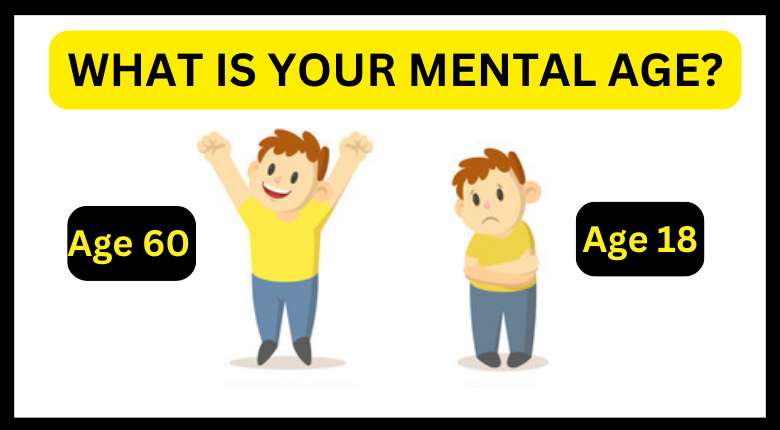Mental Age Test: What Is My Mental Age?
Another good one for the books. I love these types of quizzes where they guess your ages. This mental age test was no different and when I stumbled upon it I had to take it. I’ll be honest though, the questions were slightly odd and I wondered how some of my answers were going to determine my age.
I did find them to be very easy to answer though so answering them honestly wasn’t a problem. I often feel like some days I’m 12 and other days I kinda age or feel my age, mentally and physically. The results of this mental test though totally shocked me.
Take this Mental Age Test Free to find out what is your mental age. We update the quiz regularly and it’s the most accurate among the other quizzes.
What Is A Mental Age Test?
Mental Age Test is a questionnaire assessing intellectual functioning relative to chronological age, offering insights into cognitive development. If you take our Mental Age Test, you can find out what is your mental age, depending on the evaluation of how your mental abilities align with your real age. It is 100% accurate and you will get a perfect result.
What Is Mental Age?
Mental Age is a concept used in intelligence testing to compare an individual’s cognitive abilities to those of the average population at a specific age. Intelligence test scores that indicate average or usual performance for a given chronological age are called mental age. Mental age is divided by chronological age and multiplied by 100 to arrive at an intelligence quotient for an individual (IQ). Hence, an individual with an IQ of 100, or average intellect, is one whose mental and chronological ages are the same. An example: A 10-year-old with a mental age of 13 has an IQ of 130, significantly higher than the average IQ of people in his age group.
[Alfred Binet](https://en.wikipedia.org/wiki/Alfred_Binet), a French psychologist who invented the IQ test in 1905, was the first to define mental age. Mental ages cannot be used to accurately evaluate the basic abilities of children of different chronological ages since the difference in scores for different age groups taking graded exams grows roughly in proportion to age.
Take the example of 12-year-old guys. Even though they are all the same age, you notice that they all have extremely different looks. Some males are more muscular than others, while others are tall and slender in build. Some have already begun their growth spurt, while others have not yet begun their growth spurt. Despite being of the same age, these guys display a variety of physical and mental abilities and qualities.
Mental Age Quiz
In other words, what exactly do we mean when we talk about mental maturity? It is the age at which an individual’s mental ability is at its maximum. A person of ordinary intelligence would need to reach the same degree of mental development at the same age.
The concept of mental age is a little ambiguous in its application. In their view, even though children develop cognitively at varied rates, the path of intellectual development is similar for all children, regardless of mental age. According to them, adult intelligence fluctuates very little from year to year. Also, you must try to take this Mental age test.
Others, on the other hand, are of the opinion that intellectual development is not a linear process. A person’s intellectual ability may develop faster in some cases than in others. When it comes to reading, a 16-year-old might read well below grade level, yet be able to understand college-level arithmetic concepts.
About The Quiz
As a result of its ambiguities and contradictions, the mental age notion is shown to be a failure. Two definitions of mental age are in use and both lead to the same problems when discussing the logic of the mental age idea.
Any given test performance has a mental age that corresponds to that test performance’s chronological age.
Any given test performance’s mental age is equal to the average chronological age of the people who execute that test performance.
However, they do not have identical numerical values. If we insist on utilizing mental ages, we must clarify which of the two types of mental ages we are employing, due to their inconsistency. There is no such thing as an interchangeable pair of shoes.
The two regression lines on a correlation table and their application in this situation may help clarify the difference between these two definitions of mental age. On the scales at the pharmacy, you’ll see a little table with two columns, heights, and weights, arranged in rows. If you are used to reading it, you would say something like, “My height is so-and-so.” Next to that entry, you see the average weight of people your height. You’ve utilized the regression record.






